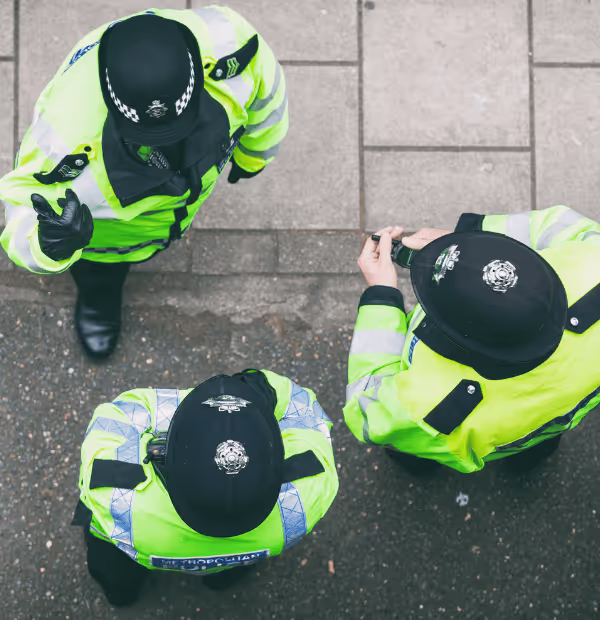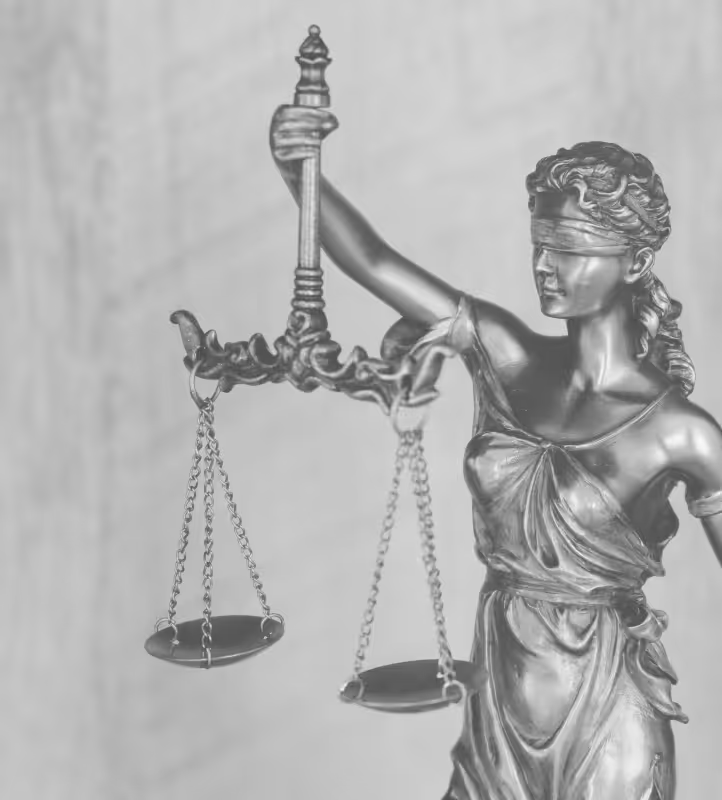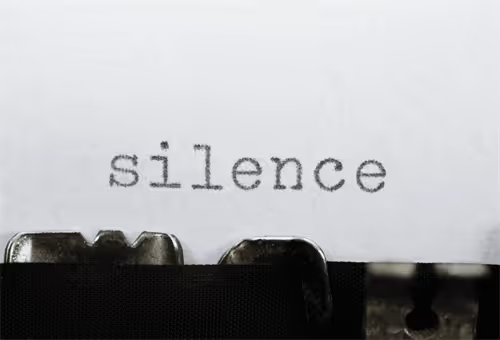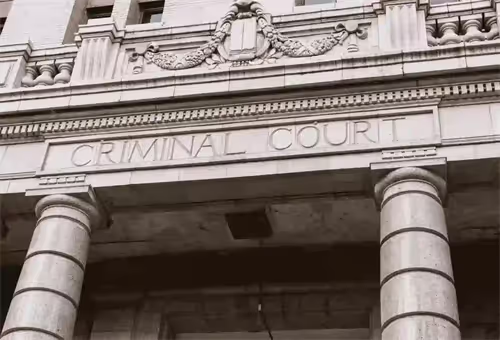Assistance with Police Interview

Expert Legal Support for Police Interviews
Facing a police interview can be a daunting and high-stakes experience. What you say during this formal questioning can significantly impact the outcome of your case, making it vital to have expert legal guidance from the start. At Brightstone Defence, our experienced criminal lawyers specialise in providing comprehensive assistance for police interviews. We ensure you are fully prepared and your legal rights are rigorously protected.
- Understanding Your Rights: We provide clear, practical advice on your right to silence and other critical legal entitlements, ensuring you make informed decisions.
- Strategic Preparation and Representation: Our team helps you understand the process, potential pitfalls, and develops a strategy for the interview. We can also be present during the questioning to object to improper conduct.
With extensive experience in managing both voluntary and compulsory interviews, we know how to navigate these critical situations to achieve the best possible outcome for your case. Contact Brightstone Defence today to ensure you have the strongest possible defence from the very beginning.
What is a police interview?
A police interview is a formal, recorded conversation between you and the police about an alleged offence that has been committed. What you say can be used in court as evidence. However it is important to know that you have the right to remain silent under the law.
Elements the Prosecution Must Prove
In New South Wales, the right to silence means that you are generally not required to answer police questions, whether you are under arrest, being interviewed or even in court. Aside from giving your name and address when lawfully asked, you have the right to remain silent in most situations. This is venerated in the Law Enforcement (Powers and Responsibilities) Act 2002, being a cornerstone principle to protect individuals from self-incrimination. To this, once police have issued a formal caution, there is no such thing as an ‘off the record’ conversation. Any information that is given voluntarily can be used as evidence in court. This is why it is essential to use your right to silence carefully with the assistance of expert legal advice.
Your rights before and during a police interview
- Remain silent, you do not need to answer a question(s) if you do not wish to
- Contacting a lawyer before, during and after the interview
- Be informed of your rights before the interview begins
- Have an interpreter present if English is not your first language
- Have a support person present if you are under the age of 18 or vulnerable
Staying silent is important if you are unsure how to express your perspective clearly. Always speak to an experienced legal professional prior to undertaking any police interviews. It may make the difference between being charged, convicted or going free.
Exceptions to the right of silence
In some situations, you are required to provide information to the police even if you are not under arrest, such as:
- Providing them with your name, address and date of birth
- Answering questions in relation to a serious indictable offence if the police believe that you have information
- If the police believe or know that you have informationabout a person having committed a serious indictable offence and you do notbring it to the attention of the police when the material may be useful inapprehending the person, this is called Concealing a Serious IndictableOffence, contained in Section 316(1) of the Crimes Act 1900.
- Providing them with information of a vehicle accident where injuries had occurred
- The police are able to command the identity of a driver or passenger of a vehicle that they suspect to be used in relation to an indictable offence, stated in the Law Enforcement (Powers and Responsibilities) Act 2002
Possible Defences
How long can police detain you for questioning?
In NSW, the police can detain you in custody for a maximum of 6 hours for investigative purposes after an arrest, though this period can be extended by a detention warrant.
Potential Penalties
Interviews: Voluntary vs Compulsory
Voluntary interviews
A voluntary police interview is where a police officer will ask you to attend the police station to ‘have a chat’ or ‘tell your side of the story’. It may feel like an informal conversation, but it can have serious legal consequences.
Compulsory interviews
A compulsory interview is when you are formally arrested or detained by police. In this situation, you legally must go with them, but this does not mean that you must answer their questions. You must provide your name and address but are not required to answer any other questions.

Legal Process
& Options
At Brightstone Defence we understand the stress and unfamiliarity that can arise from being questioned or detained by the police. We as criminal defence lawyers are here to support and assistance you for the best outcome for your situation.
Our legal team can provide essential support before, during and after any interaction with police. We can:
- Explain to you your rights and obligations clearly
- Be present during police interviews to ensure fairness
- Challenge and object inappropriate or unlawful questions and conduct
- Help you understand how your used may or may not be used against you
- Develop a strategy and plan to protect your legal position
- Ensure that the police follow the correct procedures and respect your rights
- Assist with communications or negotiations with law enforcement if necessary
- Represent you if charges are made against you after questioning
Facing police questioning without legal support can carry serious risks. The law is a complex field and what you do and do not say can have lasting consequences. Our experienced defence lawyers are here to ensure your rights are protected every step of the way and guide you to the best possible outcome for your situation.
Pleading
Not Guilty
Pleading
Guilty
- A police interview is a formal questioning session conducted by police officers to gather information from a person suspected of involvement in a crime or as a witness. The interview is a critical part of the investigation and can influence whether charges are laid.
- No, you do not have to participate in a police interview. You have the right to remain silent and not answer questions. However, refusing to attend an interview when required by law (such as being served a summons) may have legal consequences. It is important to get legal advice before deciding how to proceed.
- Yes, you have the right to have a lawyer present during a police interview. It is highly recommended to seek legal advice and have a lawyer with you to ensure your rights are protected, and to help you understand the questions and implications of your answers.
- No, the police cannot force you to answer questions. You have the right to remain silent. However, if you voluntarily answer questions, your statements may be recorded and used against you. If you choose to speak, it’s best to do so with a lawyer present.
- Making a false statement to police during an interview is a criminal offence called perverting the course of justice or giving false evidence, which carries serious penalties. It is essential to be truthful or to exercise your right to silence.
- Police interviews are often audio or video recorded to ensure accuracy and transparency. You are generally not allowed to record the interview yourself unless the police permit it. It is important to request a copy of the recording afterward, which your lawyer can help with.
If you don’t understand the questions or the language used, you have the right to ask for:
- A lawyer or interpreter to assist.
- The interview to be paused or rescheduled to ensure you fully understand and can respond appropriately.
- Police can detain you for a reasonable period to conduct the interview, but the duration must comply with legal limits and your rights. If you feel you are being held too long without charge or access to a lawyer, you should inform your lawyer immediately.
- You are not obliged to answer questions about your criminal history unless specifically asked under caution. Your lawyer can advise you on whether disclosing such information is in your best interest.
- Yes, your answers during a police interview can form part of the evidence used to charge and prosecute you. That’s why it’s important to have legal advice before participating to avoid self-incrimination or misstatements.
- Yes, you can request a break during the interview if you feel overwhelmed, confused, or need to speak with your lawyer. Police should allow reasonable breaks to ensure fairness.
- A police interview is a formal questioning session conducted by police officers to gather information from a person suspected of involvement in a crime or as a witness. The interview is a critical part of the investigation and can influence whether charges are laid.
- No, you do not have to participate in a police interview. You have the right to remain silent and not answer questions. However, refusing to attend an interview when required by law (such as being served a summons) may have legal consequences. It is important to get legal advice before deciding how to proceed.
- Yes, you have the right to have a lawyer present during a police interview. It is highly recommended to seek legal advice and have a lawyer with you to ensure your rights are protected, and to help you understand the questions and implications of your answers.
- No, the police cannot force you to answer questions. You have the right to remain silent. However, if you voluntarily answer questions, your statements may be recorded and used against you. If you choose to speak, it’s best to do so with a lawyer present.
- Making a false statement to police during an interview is a criminal offence called perverting the course of justice or giving false evidence, which carries serious penalties. It is essential to be truthful or to exercise your right to silence.
- Police interviews are often audio or video recorded to ensure accuracy and transparency. You are generally not allowed to record the interview yourself unless the police permit it. It is important to request a copy of the recording afterward, which your lawyer can help with.
If you don’t understand the questions or the language used, you have the right to ask for:
- A lawyer or interpreter to assist.
- The interview to be paused or rescheduled to ensure you fully understand and can respond appropriately.
- Police can detain you for a reasonable period to conduct the interview, but the duration must comply with legal limits and your rights. If you feel you are being held too long without charge or access to a lawyer, you should inform your lawyer immediately.
- You are not obliged to answer questions about your criminal history unless specifically asked under caution. Your lawyer can advise you on whether disclosing such information is in your best interest.
- Yes, your answers during a police interview can form part of the evidence used to charge and prosecute you. That’s why it’s important to have legal advice before participating to avoid self-incrimination or misstatements.
- Yes, you can request a break during the interview if you feel overwhelmed, confused, or need to speak with your lawyer. Police should allow reasonable breaks to ensure fairness.
SUCCESS CASES & ARTICLES
Brightstone Defence delivers focused criminal defence services year-round and has built a strong track record of successful outcomes.
Meet our lawyers
WORLD CLASS
REPRESENTATION
100+ 5 Star Reviews
Personalised legal strategies tailored to each case
Recognised leaders in criminal defence law
Free initial consultation and case evaluation
Proven success in high-stakes and complex cases
Get AN instant estimated Quote
and a free consultation session
Facing criminal charges? Our experienced criminal defence lawyers are here to help. Book your free consultation now to discuss your case and understand your options.









